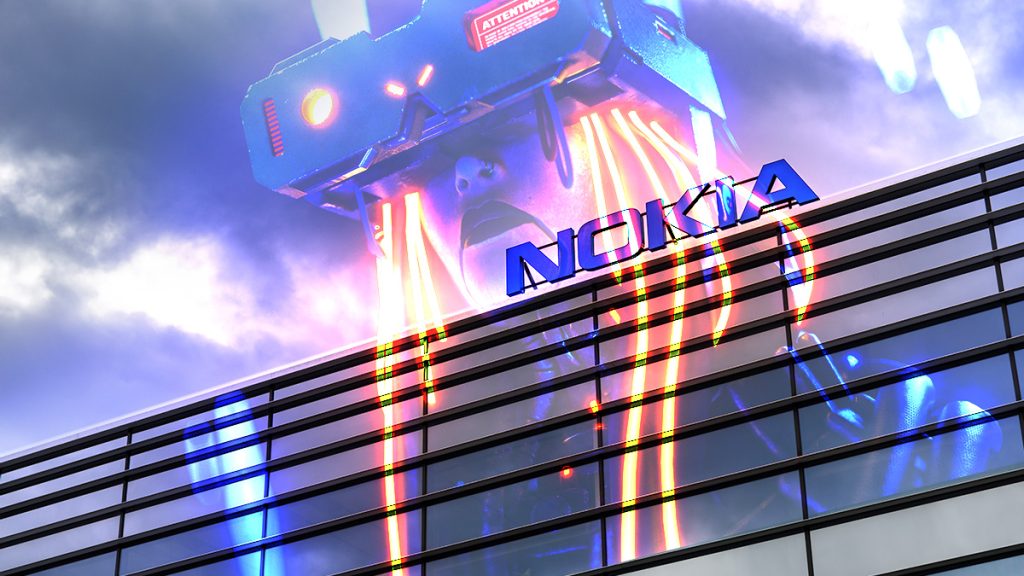
If you still need clarification about where technology is heading in the future, then the Nokia mission and vision 2030 is here to clear your doubts. Nokia is the first in the market to innovate 4G and 5G. Today, it’s the first to set a clear technological plan that holds the latest vision for 2030. Nokia’s 2030 vision will be implemented in Saudi Arabia, as it will help with the economic 2030 vision that the country has planned for. The technology of Nokia’s vision focuses on developing three key areas that they believe will transform the world as we know it: the metaverse, human augmentation and the improvement of human-computer interfaces, and digital-physical fusion. By leveraging these technologies, Saudi Arabia can accelerate its progress toward achieving the goals of the 2030 Vision KSA and ensure long-term sustainability. All areas center around integrating the digital world into our physical reality in new and exciting ways, creating a more immersive and interconnected experience for people worldwide.
Metaverse 2030
Where’s the next generation of technology heading? To simplify, the Nokia mission and vision 2030 explains what the metaverse 2030 will look like. The first area of focus in Nokia’s vision is the metaverse, a concept that has been gaining popularity in recent years. The term “metaverse” describes a fully interactive, virtual world accessible to users. It is a virtual reality that extends beyond merely donning a headset and looking at a screen in front of you. The metaverse is a fully developed virtual environment that can be viewed, interacted with, and even lived in. It is a place where individuals can assemble and connect in a way that is not constrained by actual proximity or location.
Nokia believes that the metaverse will significantly impact various industries, ranging from entertainment to healthcare, and sees it as a major driver of innovation in the years to come. The metaverse will enable fully immersive experiences in the entertainment sector that straddle reality and fiction. Imagine entering a video game or movie and experiencing the world in an authentic way without ever leaving your living room. This kind of experience will be made possible by the metaverse.
In healthcare, the metaverse could create immersive simulations that allow medical professionals to train and practice their skills in a safe, controlled environment. It could also provide virtual consultations with doctors and specialists, allowing people to access healthcare services from anywhere in the world. The metaverse could even be used to treat conditions like anxiety and phobias by creating virtual environments that allow patients to confront their fears in a safe and controlled way.
Accelerating Saudi Arabia’s plan
The 2030 Vision of Saudi Arabia is a comprehensive plan to change the nation’s economy, society, and government. The plan is based on three pillars: a strong economy, a thriving society, and an aspirational country. The plan includes a wide range of initiatives to accomplish these goals, from encouraging social inclusion and cultural diversity to creating new industries and updating infrastructure.
Nokia’s mission and vision 2030 offers new tools and technologies to hasten progress in these areas, which can support Saudi Arabia’s future objectives. The metaverse, for instance, can support social inclusion and cultural diversity by establishing new venues for interaction and connection between people from various backgrounds. The creative industries, which are an essential component of Saudi Arabia’s plan for economic diversification, can grow with the help of technology.
The advancement of human-computer interfaces and human augmentation can significantly contribute to promoting social inclusion and economic growth. These technologies can help close the digital divide and guarantee that everyone can participate in the digital economy by enhancing access to technology and making it more user-friendly. This, in turn, may support the economy’s growth by generating new businesses and industries.
In addition, digital-physical fusion can support the development of new industries and infrastructure. By creating digital twins of buildings, cities, and industrial processes, for example, Saudi Arabia can optimize resource use, reduce waste, and improve efficiency. This, in turn, can help create a more sustainable and resilient economy that can withstand future challenges and uncertainties better.
To ensure that the benefits of these technologies are realized in a sustainable way, it is crucial to prioritize environmental sustainability and social responsibility. This means taking steps to reduce the environmental impact of these technologies and ensuring that they are developed and used in a way that respects human rights and promotes social inclusion.
Final Thoughts
By offering new tools and technologies that support social inclusion, economic growth, and infrastructure development, the Nokia vision and mission can speed up Saudi Arabia’s progress toward realizing its 2030 Vision. Saudi Arabia can build a more resilient and prosperous future for its people by making sustainable use of these technologies.
Inside Telecom provides you with an extensive list of content covering all aspects of the tech industry. Keep an eye on our Community section to stay informed and up-to-date with our daily articles.